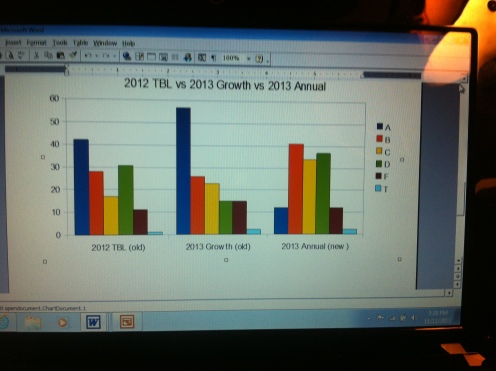Louisiana School Letter Grades: The Games Reformers Play
Let me begin this post by stating that I am against the use of letter grades as a measure of school performance. Assigning a single letter grade to a school in order to determine school worth bespeaks the disguised agenda of privatization– nothing more.
And yet, the grading of public schools abounds. Reformers insist that letter grades offer the public a quality identifier that is “intuitively understood” (straight from Jeb Bush’s Florida and officially introduced into the American Legislative Exchange Council [ALEC] playbook of so-called model legislation in 2010).
School Letter Grades: “Intuitively” Fooling the Public
For privatizers, the beauty of letter grades rests in the fact that no matter how the calculations behind the grades change– and no matter how the instruments used to measure “achievement change– and no matter how the numeric scaling of the letters change– the letters themselves remain the same. A, B, C. D. F. And since the letters themselves do not change, the public assumes that these grades hold a constant (and comparable) meaning: An “A” this year is “the same” as an “A” next year. A “D” last year and a “C” this year means that the grade “went up,” and that automatically indicates “improvement.” A “B” this year from an “A” last year means that the school must not have “performed” as well this year when compared to last.
Not so by a long shot.
There is no way to compare one year’s school letter grades to those of another yearunless the instrumentation, the geading scale, and the formulas have all been held constant. No changes. No “tweeking.” Otherwise, comparisons from one year to the

